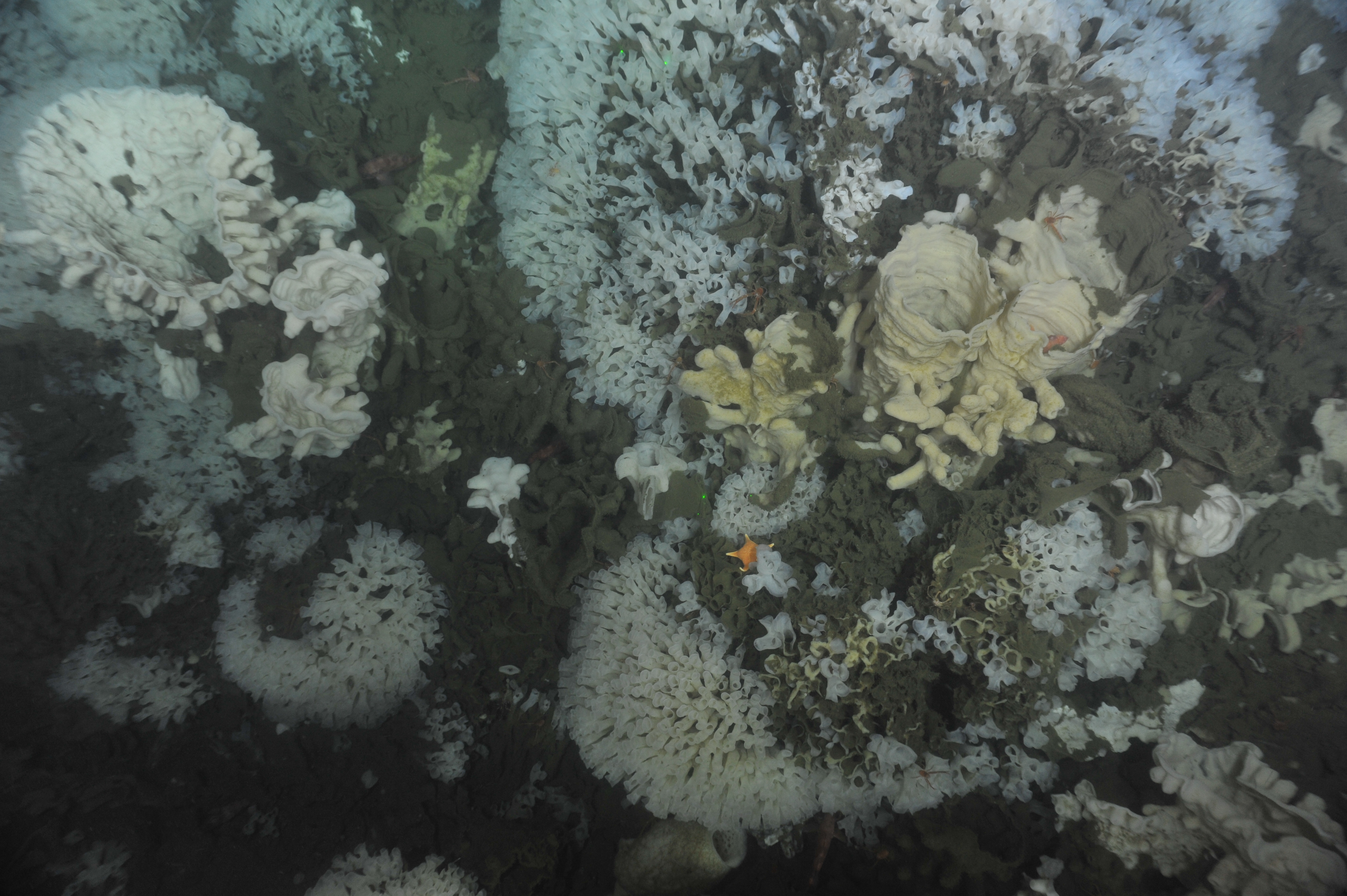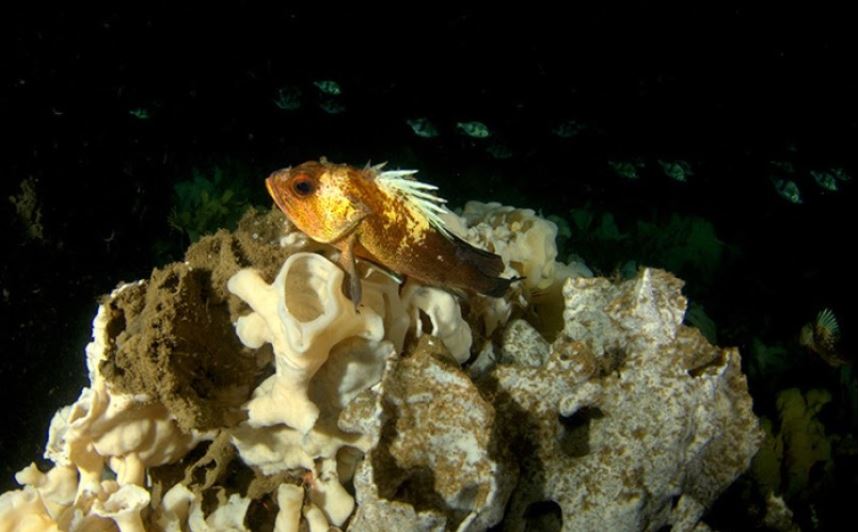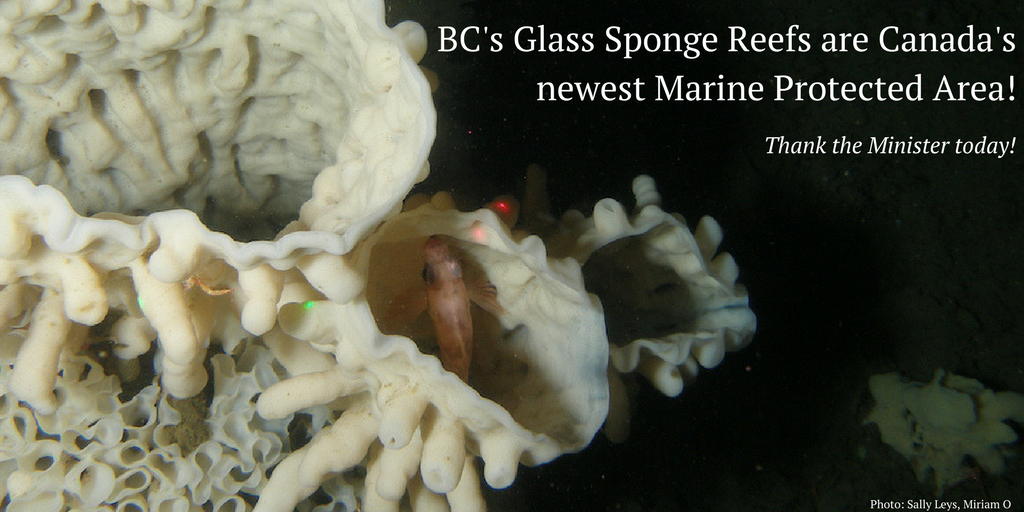CPAWS is celebrating a new marine protected area for Canada’s ancient and unique glass sponge reefs in BC’s Hecate Strait and Queen Charlotte Sound! CPAWS has been working to protect these reefs for over 16 years.
This incredible announcement did not go unnoticed. We were absolutely over-the-moon to see a congratulatory tweet from “Her Deepness”, world-renowned marine biologist Sylvia Earle, and equally excited to see Leonardo DiCaprio share our glass sponge reef video via his social media pages to a global audience of millions of people. See the video below!
“We are overjoyed to see these reefs finally get the protection they need as Canada’s newest Marine Protected Area,” said Sabine Jessen, CPAWS’ National Ocean Program Director. “The reefs are an international treasure, they are globally unique, incredibly important, and deserving of strong protection so that they can remain a source of awe and wonder for generations to come,” adds Jessen.
The living glass sponge reefs are over 9,000 years old, reach the height of an eight-storey building, and cover 1,000 km2 of ocean floor. Like coral reefs, the glass sponge reefs provide important habitat for many ecologically and commercially important species, like spot prawns, rockfish, and sharks.
“Glass sponges are as fragile as they sound. They have the consistency of a baked meringue or prawn chips, and are very easily damaged,” said Jessen. Heavy fishing gear like bottom trawl nets and prawn traps can crush the delicate reefs, while the sediment plumes kicked up as equipment is dragged along the sea floor can smother and choke the sponges.
“Tragically, we think about 50 per cent of the glass sponge reefs have already been destroyed by bottom trawlers and other heavy fishing gear,” adds Jessen.
Initially, the proposal for the MPA did not prohibit these harmful activities from happening right next to the reefs, putting the reefs at risk from further damage. After receiving thousands of letters from Canadians, as well as a letter from more than 40 international marine scientists, all demanding better protection of the reefs, the federal government strengthened the protection measures. The MPA will now prohibit all bottom contact fishing activities from occurring within at least 1 kilometre of the reefs until it can be proven they are not harmful, and will implement more stringent measures for the midwater trawl fisheries through fisheries closures.
“We are pleased to see that the Government of Canada has taken the necessary steps to improve the protection of the reefs and that the government has taken a much more precautionary approach to the design and management of this MPA. We firmly believe that there will be significant long-term benefits of strongly protecting the reefs that will outweigh the small impacts to the fishing industry,” said Jessen. “As an important nursery habitat for many commercially important species, many fisheries depend on the reefs, so protecting them will ensure the long-term sustainability of these fisheries,” Jessen added.



